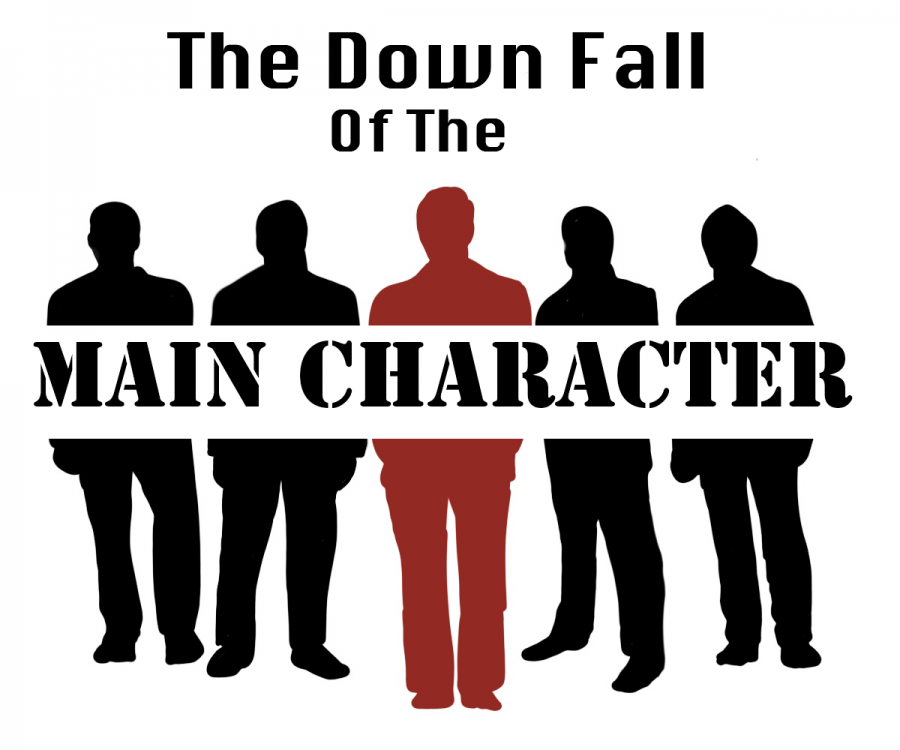The Downfall of the Main Character
Viewers of teen dramas tend to turn away from the main character because of a common characterization that places central protagonists on a pedestal which becomes the main contributor to a predictable downfall.
Throughout quarantine, I have had the opportunity to finally begin many new TV shows that have been recommended to me for years. As I completed each show, I realized that there had been a trend within all of them. I found that the main protagonists, generally, were the least liked characters amongst the current audiences. When I had seen the viewers reactions to each entire show, there was a general disdain for the main character that clearly was not the showrunner’s intended reception of their once beloved protagonist.
All the shows I had watched fell under the same genres. They were all either teen dramas or teen sitcoms, with their main difference being the time of release. Shows like “That 70s Show,” “Gossip Girl,” and “Dawson’s Creek” aired more than a decade ago; however, they have found themselves on popular streaming services that allow them to be cemented in time for the following generations of 12-year-olds to 18-year-olds to view and form their own opinions on.
Shows that have ended more recently, like “Victorious” and “The Vampire Diaries,” and shows that are continuing to produce more seasons, like “Riverdale,” have fanbases that all still share the same overwhelming hatred for the main characters.
I have concluded that there are three defining reasons that, ultimately, turn viewers away from the protagonists they were supposed to love.
The first is that the main character is simply uninteresting. If a program is centered around the central character’s life, to a point where their name is brought into the title, it seems likely that the character should have something special about them that warrants an audience’s look into their life. Even in the most down to earth shows with no gimmicks around it, the most loved characters are, at the very least, compelling or endearing.
It is common that in a lot of teen shows, the main character is not going to be the meanest, nicest, dumbest, smartest, etc. They are going to be in the middle, so when they make certain choices to drive the plot forward, the choice cannot be deemed as “out of character,” and they would be within the limitations of their established characterization.
Having a middle ground is very important with an ensemble cast, but if the side characters are wrapped up within their own plots, it becomes increasingly clear that the main character has no personality besides their dynamic with other characters.
The next factor that plays into the hatred of the main character is the lack of development. This factor ties into them being boring; however, it analyzes the character in a broader sense.
Personally, nothing annoys me more than when the same character continues to make the same mistake over and over again. I believe it is important to show growth, but that seems to be a lot to ask of main characters whose only conflicts are the ones that they have brought onto themselves.
If the viewers get to the final episodes of a series that has ran over five seasons and there is still no change or new life development, they will most likely lose all hope for any changes at all. Additionally, when the main character takes until the last few minutes to have a moment of self-analysis, the viewers will be able to see right through the writers attempt to change character’s reception.
Overall, development has played a major role in the best and worst characters. I have seen that the most loved characters of teen dramas are those who started off as either the instigator for an ensemble cast or a foil for the main protagonist, but they end up having a redemption arc that the audience sympathizes with.
The last element that has caused many viewers to dislike the main character is when they progressively become more and more self-righteous.
Often times, the main protagonist has a certain set of morals that only apply when side characters are in any sort of conflict. Further, the main character usually goes on to negate feelings and circumstance when they start preaching themes to whichever character will listen to them. While there is nothing wrong with having moral standards, it becomes a problem when main character does not apply those standards to themselves.
In many of the shows I had watched; the main characters became separated from their conscience for the sake of a new plot line. After the resolve of the conflict, they subsequently went back to being pretentious and self-righteous without acknowledging how they disregarded the value they have been condemning other characters for not showing.
When the main character becomes insufferable, you turn to the side characters to help you keep interest in the show. In doing this, your eventual love of the side character becomes strengthened by your hate for the main character.
Many people may argue in defense of their favorite main character and claim that they are simply misunderstood. In cases of liking or disliking a main character it is clear how perception plays a major role in the connections we make; nevertheless, it is always nice to have a character to root for.
In many teen shows, the central main character often gets overshadowed by their interesting, evolving and self-aware counterparts whom audiences seem to love. Regardless of the main characters reception, viewers, such as myself, can usually find at least one character and other elements that keep them coming back to enjoy the show.

